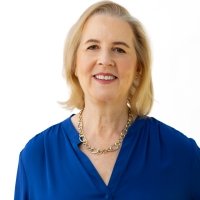The Role of Family Planning in Improving Maternal Health
Ensuring access to family planning is not only a matter of human rights, but can also play a key role in protecting the health of mothers and children. Maternal health experts and program directors met at the Wilson Center on July 31 to discuss the role family planning takes in women’s health in developing countries, what successes family planning programs worldwide have had so far, and what can be done to expand services. Sarah Craven, chief of the UN Population Fund’s Washington office, moderated the event.
“Family planning helps ensure that pregnancies occur at the healthiest time of a woman’s life, and these pregnancies are wanted and planned,” said Maureen Norton, senior technical advisor for USAID’s Office of Population and Reproductive Health. “When pregnancies occur at the healthiest times, women and their newborns are more likely to survive.”
Generally, there are five conditions that determine the healthiest possible stage for pregnancy, Norton said: ideally, the mother should be over the age of 18, but under 34; have at least three years between live births or one-and-a-half years after an induced abortion or miscarriage; and have fewer than five previous pregnancies.
Jessica Bowers of Every Mother Counts said they see family planning “as the lowest cost intervention with the biggest return, with the ability to prevent to up to a third of maternal deaths.”
Janet’s Story
Bowers showed the first 15 minutes of the film, No Mother No Cry, directed by model Christy Turlington Burns, who became involved in maternal health advocacy after complications during her own delivery. Every Mother Counts has used the film to raise awareness about the dangers of pregnancy for women around the world, from Tanzania, Bangladesh, and Guatemala to the United States.
The first story, about a Tanzanian woman named Janet, shows the challenge facing many rural mothers in sub-Saharan Africa. Despite being full term, Janet travels five miles back and forth on foot from her home to a small, understaffed clinic twice hoping to give birth. But complications prevent delivery each trip and she begins to become incapacitated by pain. It is her third pregnancy and she tells the documentary crew how unusually painful and difficult this one has been compared to the others. Eventually the documentary team hires a van to bring her and her husband to the closest hospital. The cost of the van was $30, more than their monthly household income.
Across sub-Saharan Africa, 1 in 22 mothers die from pregnancy-related complications, like those encountered by Janet, Bowers said, many of which are preventable through the use of family planning simply to space and time births better.
Janet’s husband is a silent but clearly influential protagonist in the film, and Norton and other panelists stressed the importance and success of involving men and religious leaders in promoting family planning in their communities. “We are learning from our operations research studies that when women and men, and even religious leaders and community leaders are counseled on the healthy times for a pregnancy, they understand this concept immediately, and the use of family planning increases in those interventions groups,” she said.
Dr. Ben Schwartz, the senior director of CARE’s Health Equity Unit, agreed, pointing out that in Chad strong engagement with men and religious leaders has helped to reduce social barriers and to increase community support. “Results so far have been very positive with significant uptake of family planning, particularly long-acting methods,” he said.
Reducing Maternal Mortality in Uganda
Marie Stopes Uganda Country Director Jonathan Cooper said their efforts to reach rural women with family planning services have made them one of the largest private health care providers in the country. The organization has a presence in every district of Uganda, providing one in four modern contraceptives, with a total 15 clinics throughout the country, he said.
But “our core business really has been mobile outreach,” he said. “We have 25 clinical teams who move out 20 days a month, each of them visiting between 40 and 60 health facilities, which means they cover about 1,400 public health sites across Uganda.”
“We provide group counseling and those who want to take it further have individual counseling and sign a consent form before receiving a family planning method of their choice. Our focus is primarily on long-term and permanent methods, but we provide a voluntary choice of all methods of contraception,” he said. “That includes moon beads!”
“There’s a strong public-private ethos in Uganda,” Cooper said. In addition to coordinating with the Ministry of Health and district health teams, Marie Stopes works with the association of Ugandan obstetricians and gynecologists to get training, monitoring, and accreditation, and promotes the BlueStar social franchising program, which supports local entrepreneurship and quality of care in more than 450 clinics in the country.
Marie Stopes estimates the unmet need for family planning in Uganda at 34 percent of women of reproductive age, or 1.8 million women, he said. “If we met the unmet need, it would reduce the maternal mortality by a third immediately.”
“There are so many misconceptions in the villages around contraception,” Cooper said, including the idea that intrauterine devices, a long-term method of contraception, can cause brain hemorrhages or cancer. Defusing these ideas can save lives, he said.
A Season for Motherhood
“We all know that sexual, reproductive, and maternal health is critical, not only to a woman’s health and well-being, but also to reducing poverty and increasing social justice which is CARE’s global mission,” said Schwartz. “Our work is embedded in the principle that all women have a right to self-determination, bodily integrity, and non-discrimination in the receipt of services.”
This is especially true for the most disadvantaged, Schwartz said. According to the UN, around 45.2 million people were displaced last year by conflict and persecution – more than any year since 1994 – and many lost access to maternal health and family planning services. “UNFPA estimates that about a quarter of maternal deaths in refugee settings are from complications of unsafe abortion, and both mothers and children face significant risks from unwanted pregnancies that go to term,” Schwartz said.
From refugee camps to rural villages, the seemingly simple task of meeting family planning needs has an outsized impact on women’s health. Quoting USAID Zambia Mission Director Dr. Susan Brems, Norton said “seasonality means there is a time for most things”:
In farming there is a time for the rains and a time for the dry season, a time to plant, to weed, and to go to market. This seasonality gives a rhythm to our lives. If we do things out of season– plant too soon or too late – it disturbs the rhythm of our life and causes problems. And so there is a seasonality to motherhood. There’s a time when it is safe and healthy for a woman to become pregnant, and there are times when it’s not good. Let us commit here today to respect the seasonality of a woman’s body. Our rallying cry should be ‘everything in its season: births not too soon, births not too close together, births not too late.’
Speakers


Hosted By

Maternal Health Initiative
Housed within the Wilson Center's Environmental Change and Security Program, the Maternal Health Initiative (MHI) leads the Wilson Center’s work on maternal health, global health equity, and gender equality. Read more


Environmental Change and Security Program
The Environmental Change and Security Program (ECSP) explores the connections between environmental change, health, and population dynamics and their links to conflict, human insecurity, and foreign policy. Read more
